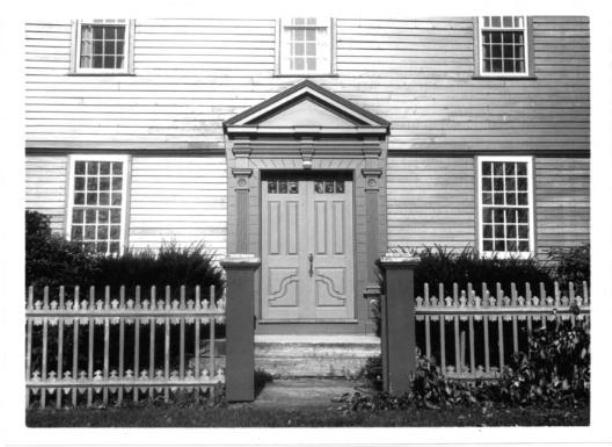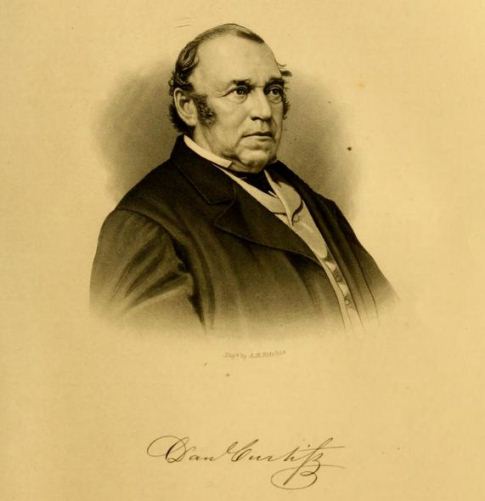Daniel Curtiss was the epitome of the “self-made man” during the early 19th century. A direct descendant of Captain William Curtiss—one of the founders of Woodbury—Daniel spent most of his life in Woodbury, thriving in business, pioneering the sale and distribution of commercial goods, and serving his town by holding political office.
The fifth child of David and Sybilla Curtiss, Daniel was born in Woodbury on September 18, 1801. He attended public schools in town before going on to teach briefly in Middlebury and Litchfield. Curtiss then took a job as a peddler in New Jersey, where he sold wares for a local merchant.
Ventures Include German Silver and Woolen Goods
It was not long, however, before Curtiss returned to Woodbury and opened up a shop of his own—selling dry goods and groceries. It was around this time that Curtiss became a pioneer in the production and sale of German silver—an alloy of copper, nickel, and zinc. Curtiss sold utensils and thimbles made of German silver using a network of up to 75 peddlers who he employed to travel throughout the country.
In 1837 he married his wife Julia and the two spent the majority of their lives in the house Daniel purchased from Jabez Bacon. Bacon was himself a merchant and supplied goods to peddlers traveling as far out as Connecticut’s Western Reserve. The house, an excellent example of a Georgian-style home built in the mid-18th century, later received a listing on the National Register of Historic Places.
In the years immediately following his marriage, Curtiss sold his business and entered into the manufacture of woolen goods. It was a prosperous enterprise eventually taken over by his sons and operated under the name “Daniel Curtiss’ Sons.” During the late 1840s, Curtiss increasingly chose to spend his time farming, but his keen business sense soon brought him another challenging opportunity.
In 1851, the Woodbury Bank opened in town and chose Curtiss as its first president. In addition to his work for the bank, Curtiss’s later life included a foray into politics. He served as a selectman and in the state senate before passing away in Woodbury on May 16, 1878.










